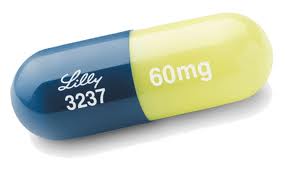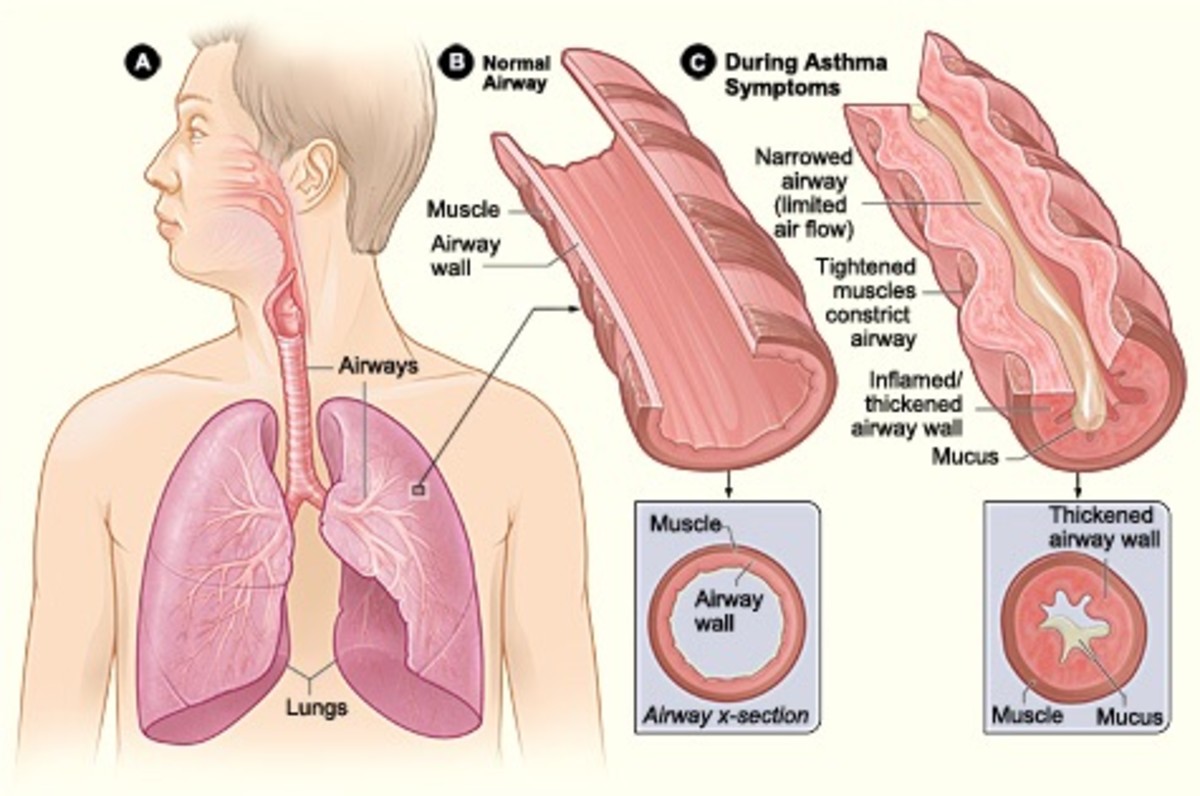DRUGS FOR FIBROMYALGIA (like Savella)


Fibromyalgia
This is a brief article about the 3 prescription drugs used specifically to treat fibromyalgia pain:
- Cymbalta
- Lyrica
- Savella
The word "fibromyalgia" comes from the combination of several Greek words, and it simply means tissue or muscle pain, although the disease itself is far more complex than that. The term "Fibromyalgia" (FM), also known as "Fibromyalgia Syndrome" (FMS) was first coined in 1976. Currently the prevalence of fibromyalgia is about 2%, and is 7 times more common in females than in males.
Fibromyalgia symptoms include, but are not limited to:
- Widespread pain on both sides of the body, both above and below the waist
- Painful "tender points" on the body including the back of the head, shoulders, neck, chest, elbows, hips, inner knees and other places
- Fatigue and sleeping difficulty
Many people with fibromyalgia also suffer from other conditions as well such as headache, osteoarthritis, depression or restless leg syndrome.
This article is about the prescription drugs marketed specifically for fibromyalgia. Although a variety of medications are used to treat the symptoms of fibromyalgia, there are currently just 3 prescription drugs which are specifically indicated to treat "fibromyalgia." The medical term is that these drugs are "indicated" for fibromyalgia. In other words, they have been specifically and carefully (through clinical trials) studied and tested on patients with this disease.
These prescription drugs to treat fibromyalgia are:
- CYMBALTA (duloxetine)
- LYRICA (pregabalin)
- SAVELLA (milnacipran)
The name in "( )" is the "generic name" of the product, although presently there are not any generics available for these 3 prescriptions drugs for fibromyalgia.
Although other drugs CAN be used to treat the pain associated with fibromyalgia, as I said, these 3 are the only prescription drugs specifically approved to treat fibromyalgia.
PLEASE NOTE: Nothing in this article is intended to replace the advice of your own doctor.

CYMBALTA FOR FIBROMYALGIA
Cymbalta began life as an antidepressant. But as with many drugs, new uses and opportunities were discovered. Presently Cymbalta is approved to treat depression, GAD (generalized anxiety disorder), Diabetic Neuropathy, and of course...fibromyalgia pain. Cymbalta is manufactured by Lilly Pharmaceuticals.
Cymbalta for fibromyalgia pain is dosed 60mg once daily, although patients sometimes start with just 30mg once daily.
Treating fibromyalgia pain with Cymbalta should not be considered a cure. Be prepared to give the medication several weeks to begin working effectively.
HOW IT WORKS: It is not well understood exactly how Cymbalta works to provide fibromyalgia relief. However, the mechanism of action involves enhancing the effects of serotonin and norepinephrine (2 important neurotransmitters) in the brain.
SIDE EFFECTS: Side effects from Cymbalta could include nausea, dry mouth, drowsiness, decreased appetite, and constipation. Other, less common side effects, are also possible.
DIRECTIONS: Take Cymbalta as prescribed by your doctor. It is usually taken once daily. It does not matter if it is taken with or without food. Ideally...take it at the same time each day.
DO NOT stop Cymbalta for fibromyalgia suddenly. It is recommended that you wean yourself off, under the advice and direction of your doctor.
MORE INFORMATION: For more information on treating fibromyalgia pain with Cymbalta CLICK HERE to visit the manufacturer website. Or call their special phone number for patient questions at 1-800-LILLY-RX.
LYRICA FOR FIBROMYALGIA
Like Cymbalta, Lyrica did not begin specifically as a treatment for fibromyalgia. Lyrica was first approved to treat seizure disorders. But in 2007 it became the first prescription drug in the U.S. approved to treat fibromyalgia. Lyrica is manufactured by Pfizer pharmaceuticals.
Lyrica comes in capsules, and an oral solution:
- Capsules are available in 8 different strengths: 25mg, 50mg, 75mg, 100mg 150mg, 200mg, 225mg and 300mg.
- The oral solution is available in 20mg/ml (that is 100mg per teaspoonful).
FIBROMYALGIA DOSAGE: Usually the total daily dose for fibromyalgia pain treatment begins at 150mg per day (i.e. 75mg capsule twice daily) and can go up to 450mg per day (i.e. 225mg twice daily).
HOW IT WORKS: If you can figure this one out...there may be a Nobel Prize in it for you! Studies have shown that it seems to act by binding to areas of the brain and spinal cord that could contribute to pain. More scientifically, it is known as an "alpha 2 delta ligand" and selectively targets calcium channel subunits. It is NOT to be confused with "calcium channel blockers" which impact calcium channels in our blood vessels. Basically, for now, think of it as a drug which calms the nerves.
SIDE EFFECTS: Lyrica for fibromyalgia pain may cause drowsiness and dizziness, weight gain, blurry vision, trouble concentrating, swelling of the hands and feet, and dry mouth. Other side effects can occur as well. Note: any swelling, difficulty breathing, or rash should be immediately reported to your doctor. Lyrica has been shown, rarely, to cause suicidal thoughts. Patients should be aware of this observation.
DIRECTIONS: Take Lyrica as directed by your doctor. Try to take it at the same times every day. It can be taken with or without food. Do not skip doses. Never double your dose to make up for a missed dose. Do not stop Lyrica suddenly.
For more information on Lyrica and how to treat chronic fibromyalgia, visit the manufacturer's website. They have a special phone number for fibromyalgia patients taking Lyrica: 1-888-5-LYRICA.
SAVELLA FOR FIBROMYALGIA
Savella is a prescription medication for treating the pain of chronic fibromyalgia. Savella is marketed by Cypress Bioscience. It comes in tablets of 4 strengths: 12.5mg, 25mg, 50mg and 100mg. Savella for fibromyalgia belongs to the same "family" of medications as Cymbalta, but unlike Cymbalta, Savella is only approved for the treatment of fibromyalgia.
FIBROMYALGIA DOSAGE: Generally the dose will be slowly increased over the course of 1 week to 50mg twice daily. In some cases 100mg twice daily may be needed.
HOW IT WORKS: See this section in the Cymbalta information above, Savella works in the same way.
SIDE EFFECTS: The most common side effects associated with Savella are nausea, headache, constipation, dizziness, insomnia, vomiting, dry mouth, heart palpitations and increases in blood pressure. Suicidal thoughts, as with all similar medications, have been reported. This was more common in younger patients.
DIRECTIONS: Savella should be taken as directed by your doctor. Usually it is given twice daily, with our without food. Taking it with food may make it more tolerable if you experience stomach discomfort. Do NOT take Savella if you are taking any MAO Inhibitors. Do not stop taking Savella suddenly.
For more information of Savella, visit the manufacturer's webisite by CLICKING HERE!
HOW LONG DOES IT TAKE FOR THESE TO WORK?
That is a good question, and it depends very much on the patient. A rule of thumb is "several weeks to a month." The hard part is that the side effects may begin immediately! However, you may not have any side effects at all. And if it is any encouragement, remember that the side effects alert you that the medicine is doing something. However, the beneficial effects may still take several more weeks to begin. Hang in there. I hope this information has provided you with some useful answers to your questions about drugs for fibromyalgia pain.
OTHER FREQUENTLY ASKED QUESTIONS
How much will these medications cost?
Cymbalta, Lyrica and Savella are currently only available as brand name products. They are quite expensive, in the area of $150 to $175 per month, depending on the drug and dosage. However, if you have a prescription benefit, you may be able to receive one of these medications more affordably. Also, visit the respective manufacturers websites for coupons and discounts.
How do I get a prescription for these medications?
Talk to your doctor. It is likely that they will have you try other medications first (like traditional pain relievers, muscle relaxers, or SSRI's). If you have tried these without success, and have a diagnosis of fibromyalgia, then your doctor may be willing to consider treating you with one of these medications.








